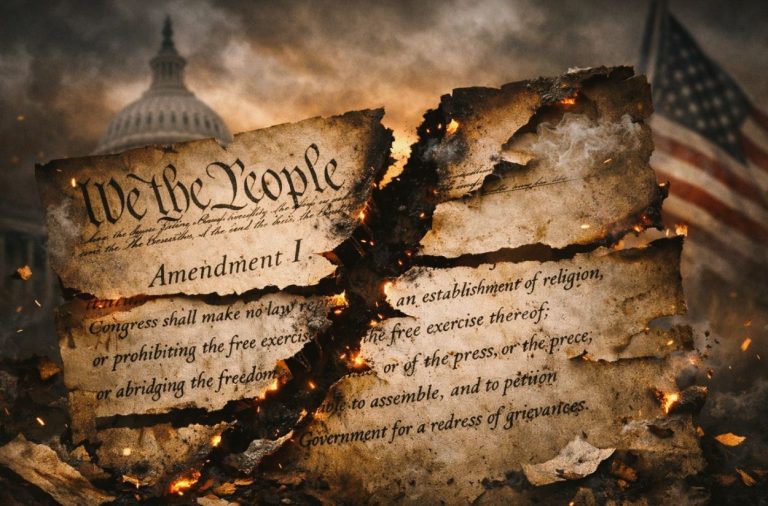

If Americans cannot rebuild confidence in democratic practice, the fantasies of thrones and boards may no longer be thought experiments. They may become blueprints.

By Matthew A. McIntosh
Public Historian
Brewminate
The Return of Monarchical Fantasies
The word “monarchy” has long felt like a foreign artifact in the American ear, a reminder of a system cast off in 1776. Yet across op-ed pages and intellectual salons, the term is quietly resurfacing. Writers toy with the idea of a ceremonial monarch who might serve as a stabilizing figurehead, separating the identity of the nation from the partisan warfare of elections.
It is not only an academic parlor game. Pop culture has kept monarchy alive in American imagination: weddings broadcast from Windsor Castle, royal dramas on Netflix, even the tabloids’ obsession with palace intrigue. Against a backdrop of distrust in Congress and exhaustion with presidential whiplash and a guy who just cannot bring himself to let a day go by without his mug and voice on camera, some now wonder whether the “pageantry of stability” offers an answer.
Such musings take varied form. One essay envisions a monarch alongside a Congress modeled on Britain’s Westminster system, where governments rise and fall on confidence votes rather than gridlock. Others look nostalgically at Europe, where constitutional monarchies seem to weather political storms with symbolic crowns intact.
But nostalgia often conceals naivete. America defined itself precisely by rejecting hereditary power. To reintroduce it, even as symbolism, would not escape politics. A monarch in America would inevitably be caught in the same polarization that afflicts every other institution. Instead of unity, the crown might simply become another battlefield in the culture wars.
What these fantasies reveal is less a practical proposal than a yearning: for order, continuity, and a figure above the fray. In an era when democracy feels fractured and fragile, the allure of monarchy becomes less about Britain or Bourbon France and more about an American hunger for certainty.
Yarvin’s Corporate Kingdom

No figure embodies the intellectual edge of this turn more than Curtis Yarvin, who under the pseudonym “Mencius Moldbug” has long argued for the replacement of democracy itself. In Yarvin’s telling, governments should operate like corporations. The chief executive would function as a monarch, accountable not to voters but to shareholders or boards hidden from public scrutiny.
This “neo-reactionary” blueprint has gained currency among segments of Silicon Valley and political operatives who see democracy as too inefficient for a world that rewards speed, hierarchy, and control.
The danger lies in how such rhetoric blurs into practice. Calls for streamlined authority dovetail with corporate lobbying for deregulation, with tech billionaires buying influence over policy, and with movements to gut civil service protections.
Yarvin’s ideas, once fringe, now echo in speeches by sitting senators who describe America as “ungovernable” under current constitutional arrangements. What once was radical fiction is being reimagined as pragmatic reform.
Fascist Echoes in the Conversation
These fantasies do not appear in a vacuum. They activate older tropes of fascist temptation: the longing for order, the promise of unity, and the dismissal of messy democratic compromise.
The language of “efficiency” and “tradition” often disguises a deeper drive to concentrate power. The same cultural currents that elevate nostalgia for monarchy or corporate kingship resonate with an authoritarian imagination that finds comfort in vertical structures and distrusts pluralism.

History warns that such movements rarely admit their own ambitions. Fascism seldom arrives waving its true name; it dresses instead in familiar rhetoric, drawing legitimacy from the anxieties of the present.
In this sense, the current flirtations with monarchy and corporatocracy are not eccentric detours but signals of a broader struggle over the future of American governance.
Data Points on Authoritarian Temptation
Survey data reveals how fertile the ground has become for these experiments in political imagination. A 2024 Pew Research Center study found that only 21 percent of Americans trust the federal government to do what is right “most of the time.”
Gallup polling the same year reported that confidence in Congress had dipped to 8 percent, the lowest since records began. Equally striking are attitudes toward leadership itself.
A 2023 University of Chicago survey noted that nearly 40 percent of respondents agreed that the United States “would be better off with a strong leader who does not have to bother with Congress or elections.” While support for outright monarchy remains vanishingly small, the appetite for bypassing democratic structures is no longer confined to extremist subcultures.
The financial weight behind this shift is equally telling. According to OpenSecrets, total federal lobbying spending topped $4 billion in 2023, with tech and pharmaceutical giants leading the charge. Billionaires like Elon Musk, Peter Thiel, and Charles Koch have funneled hundreds of millions into reshaping political debate through super PACs and think tanks.
Such flows of money blur lines between governance and capital. When the wealthiest individuals can tilt elections or seed entire policy agendas, the idea of a “corporate monarchy” no longer feels abstract. The material conditions already exist: unelected boards of directors can exert more influence on national direction than millions of voters combined.
Comparative data offers further caution. The International Institute for Democracy and Electoral Assistance observed that in countries where democratic satisfaction drops below 30 percent, support for authoritarian alternatives tends to surge within a decade. The American trajectory now flirts with those thresholds, fueled not only by disillusionment but by concentrated wealth and influence.
Populist Figures and the Culture of Authority

These ideological fantasies of monarchy and corporatocracy intersect with real figures shaping the public imagination. Donald Trump, for example, has consistently framed himself as a singular leader above institutions, promising to “drain the swamp” yet consolidating loyalty around personal charisma rather than constitutional limits. His rhetoric often blurs the line between elected office and personal rule, normalizing the idea of politics as the domain of one dominant personality.
Vice President J.D. Vance, once a heavy critic of Trump (whom he once called “America’s Hitler”), now openly embraces strongman tropes, describing democracy as a system that has “failed to deliver” for ordinary Americans. He has voiced admiration for Hungary’s Viktor Orbán, whose model of “illiberal democracy” has already weakened judicial independence, stifled dissent, and concentrated power in ruling elites.
Media ecosystems amplify these moves. Right-wing talk shows and podcasts flirt with imagery of crowns, thrones, or the “CEO president,” presenting authoritarian language as common sense rather than extremism. The normalization of monarchy-inspired aesthetics, combined with Silicon Valley fascination for corporate governance, creates a cultural environment in which authoritarian language no longer feels exotic.
Even the realm of entertainment feeds the current. Fantasy franchises like Game of Thrones or The Crown romanticize rule by singular figures, while political discourse piggybacks on the cultural shorthand. Such storytelling does not directly cause authoritarian longing, but it provides a vocabulary for thinking about power in personalized, vertical terms rather than collective, pluralistic ones.
The convergence of political figures, media tropes, and cultural narratives underscores that the authoritarian temptation is not confined to intellectual journals or fringe blogs. It lives in the mainstream, reinforced by personalities who reshape the imagination of what leadership should look like.
A Battle of Imagination
What is unfolding is less a policy debate than a contest of imagination. Can democracy still inspire belief in its messy, pluralistic promise, or will its failures invite seduction by the language of order and tradition?
The stakes are not limited to intellectual circles. Cultural flirtations with monarchy, fascism, or corporate rule do not remain in essays or podcasts; they shape how citizens envision the possible.
Rome offers a cautionary echo. The republic that once prided itself on civic virtue succumbed to empire not through sudden conquest but through exhaustion with its own gridlock and corruption. Julius Caesar’s rise was made possible less by his brilliance than by a public weary of republican failure. Weimar Germany tells a more recent story: in times of humiliation and political stalemate, the promise of decisive authority proved fatally attractive.
The United States is not Rome and it is not Weimar, but historical comparisons sharpen the present danger. Authoritarian experiments begin as fantasies, then as reforms, and only later as regrets.
If Americans cannot rebuild confidence in democratic practice, the fantasies of thrones and boards may no longer be thought experiments. They may become blueprints. And once they do, history suggests they will not easily be rolled back.
Originally published by Brewminate, 08.28.2025, under the terms of a Creative Commons Attribution-NonCommercial-NoDerivatives 4.0 International license.


